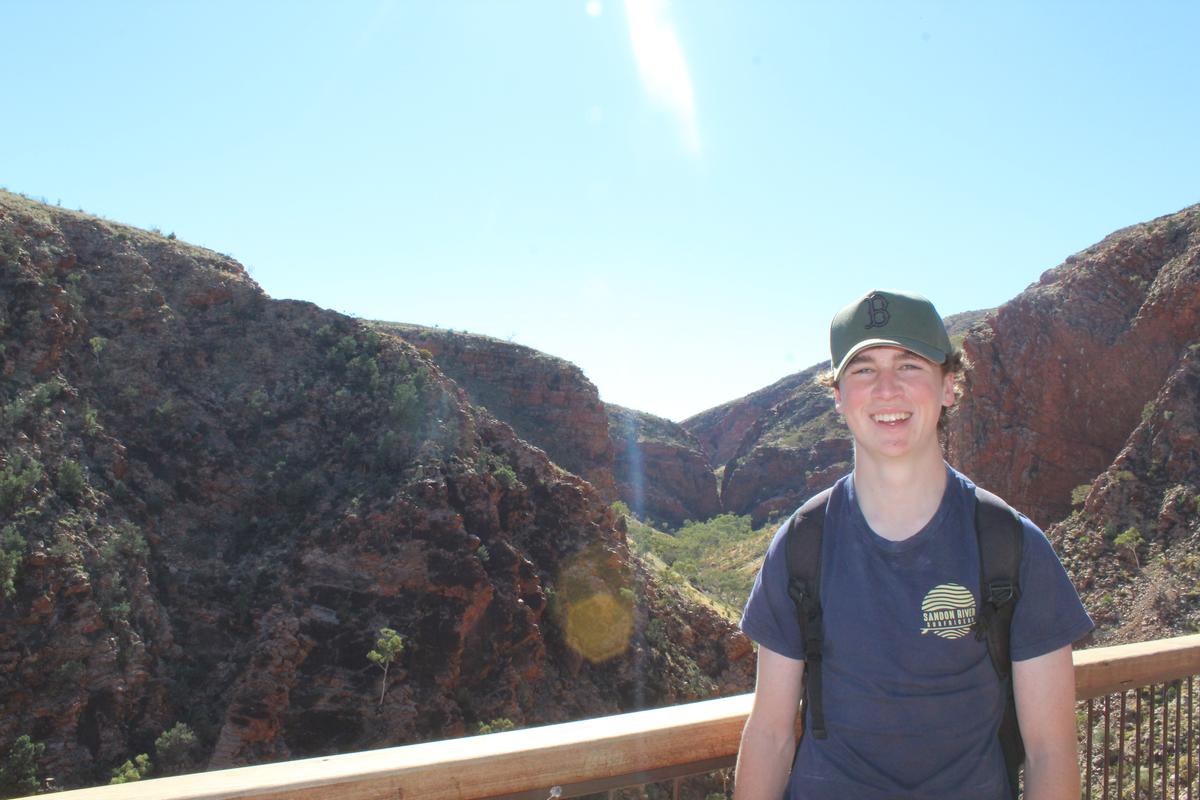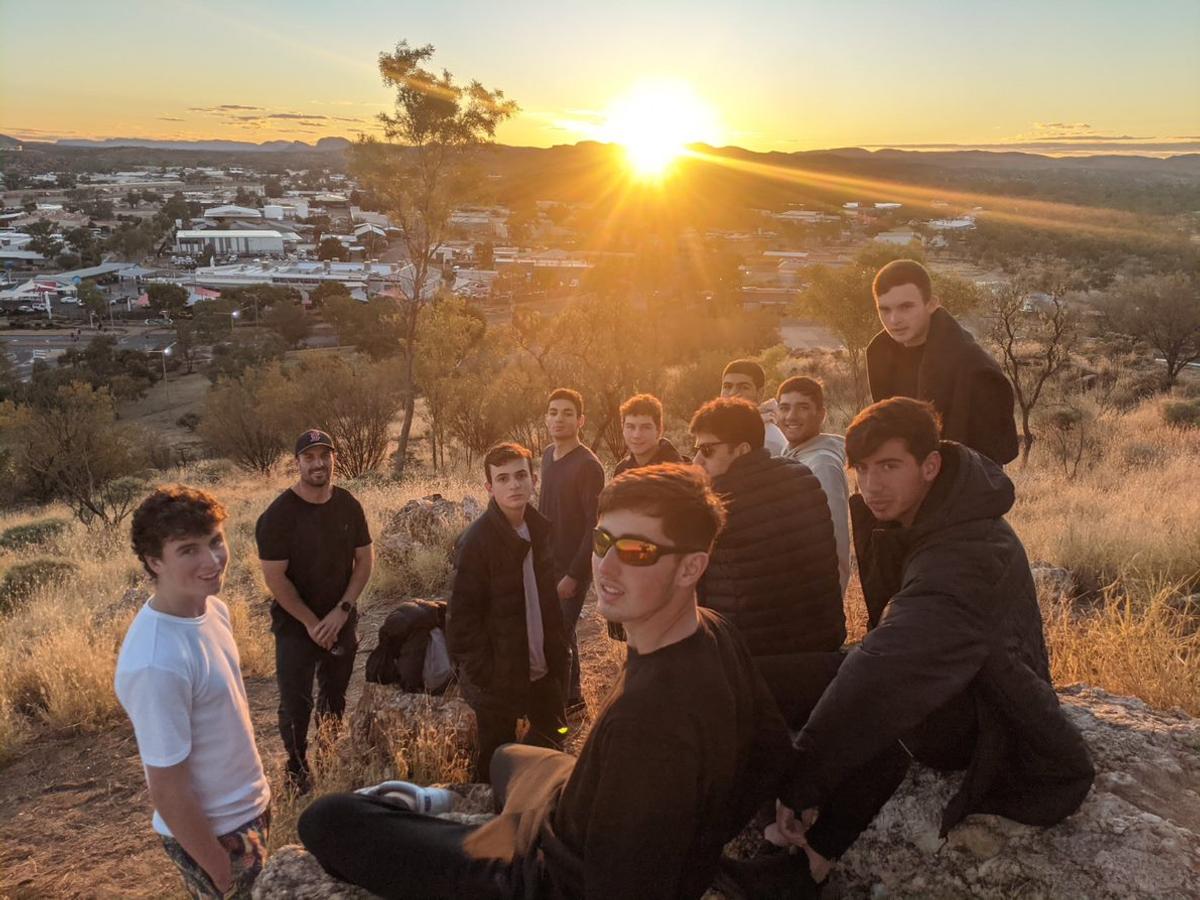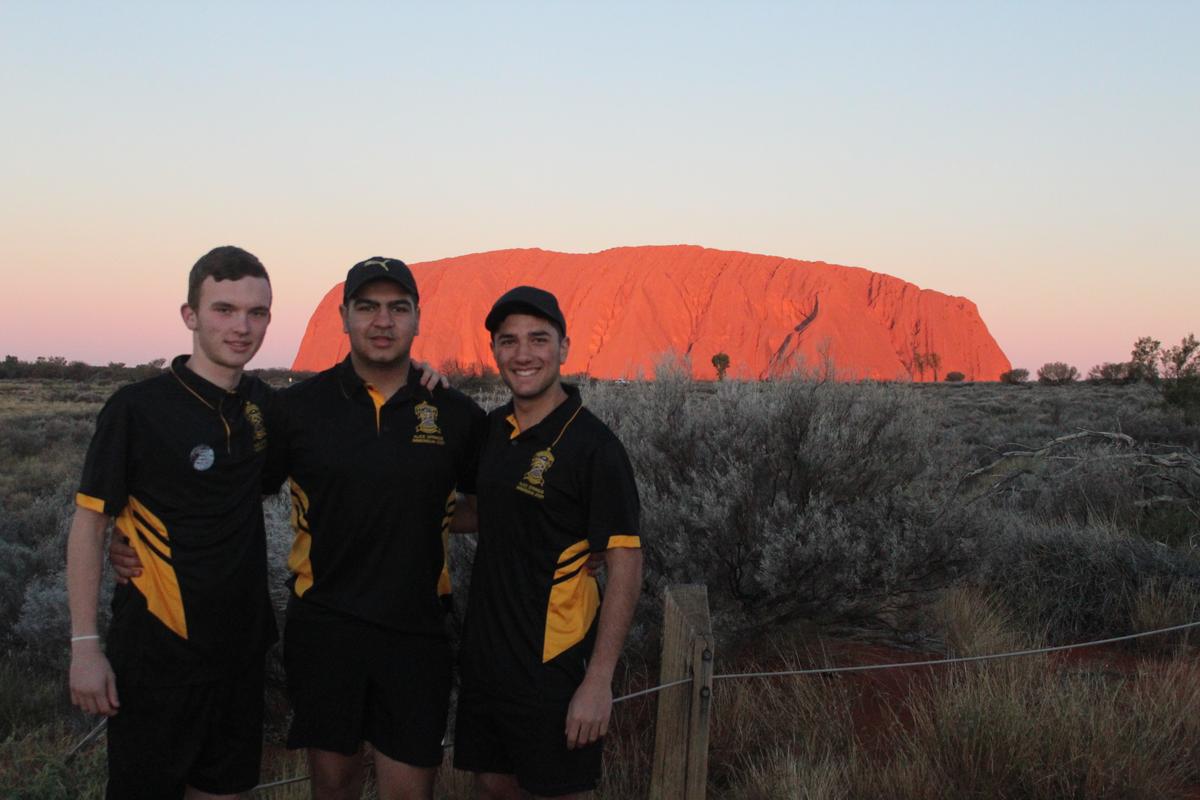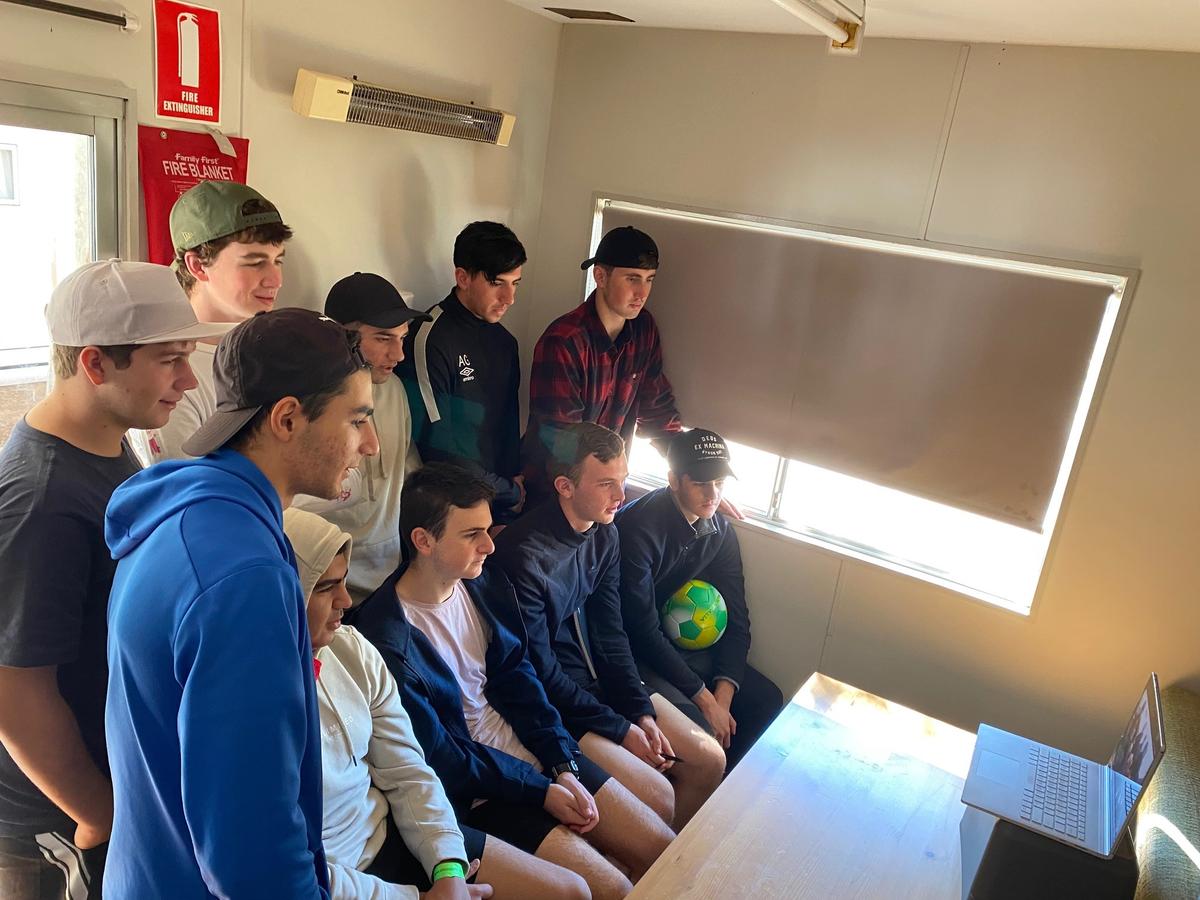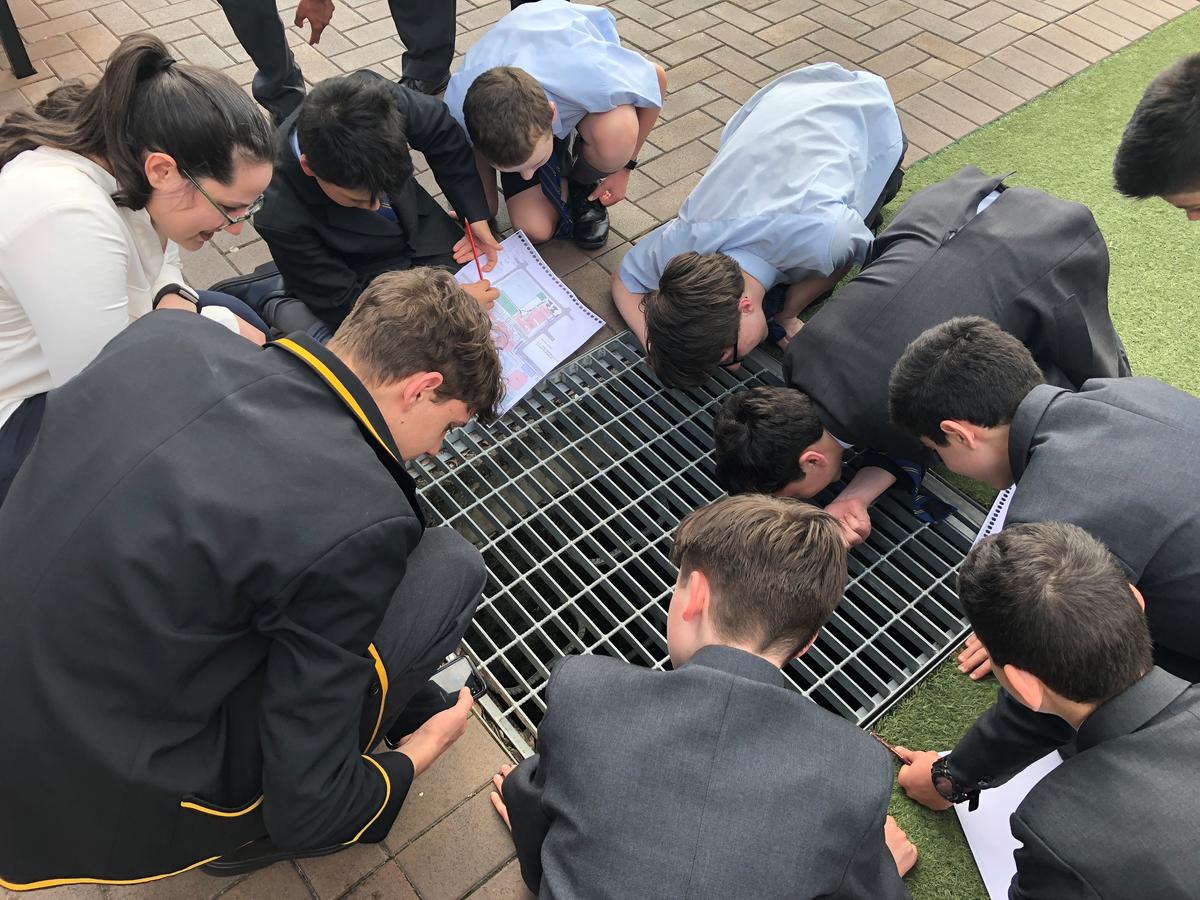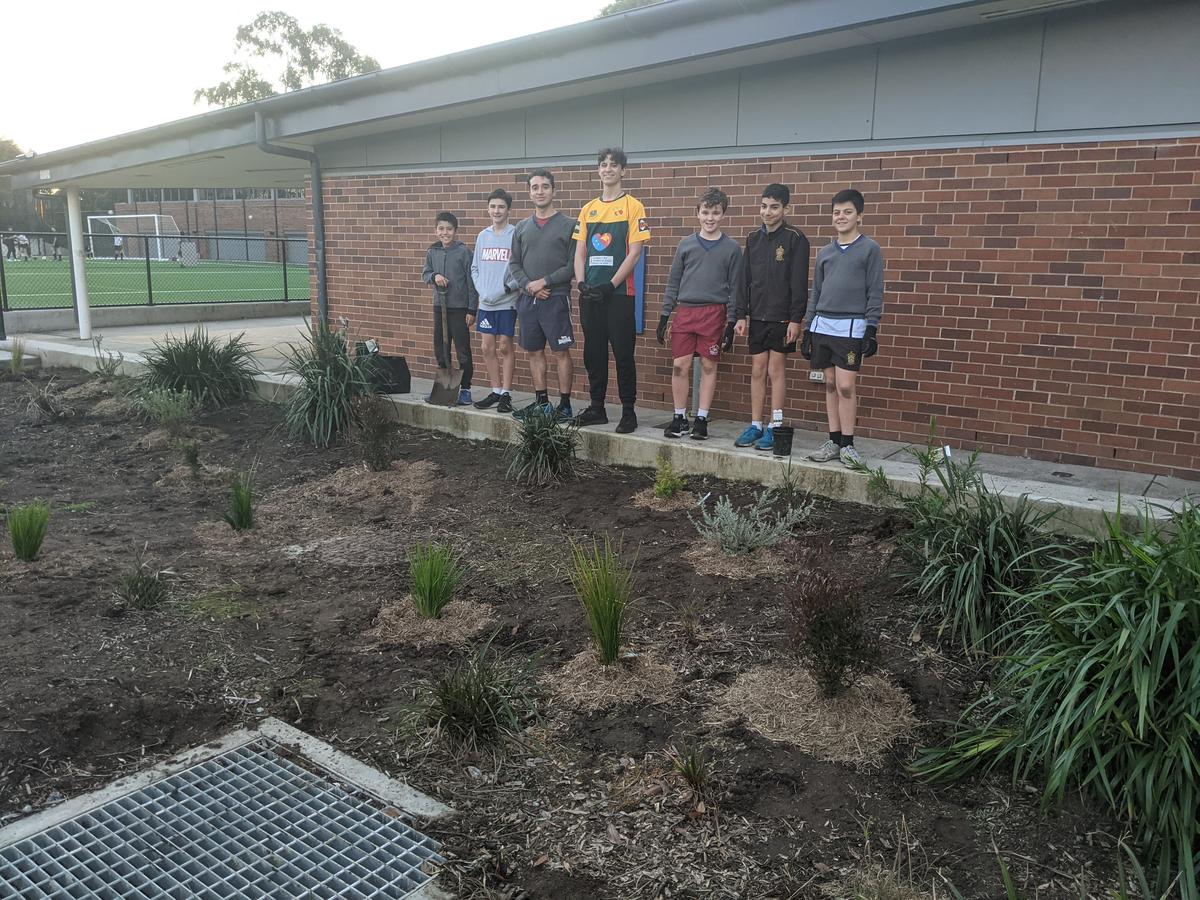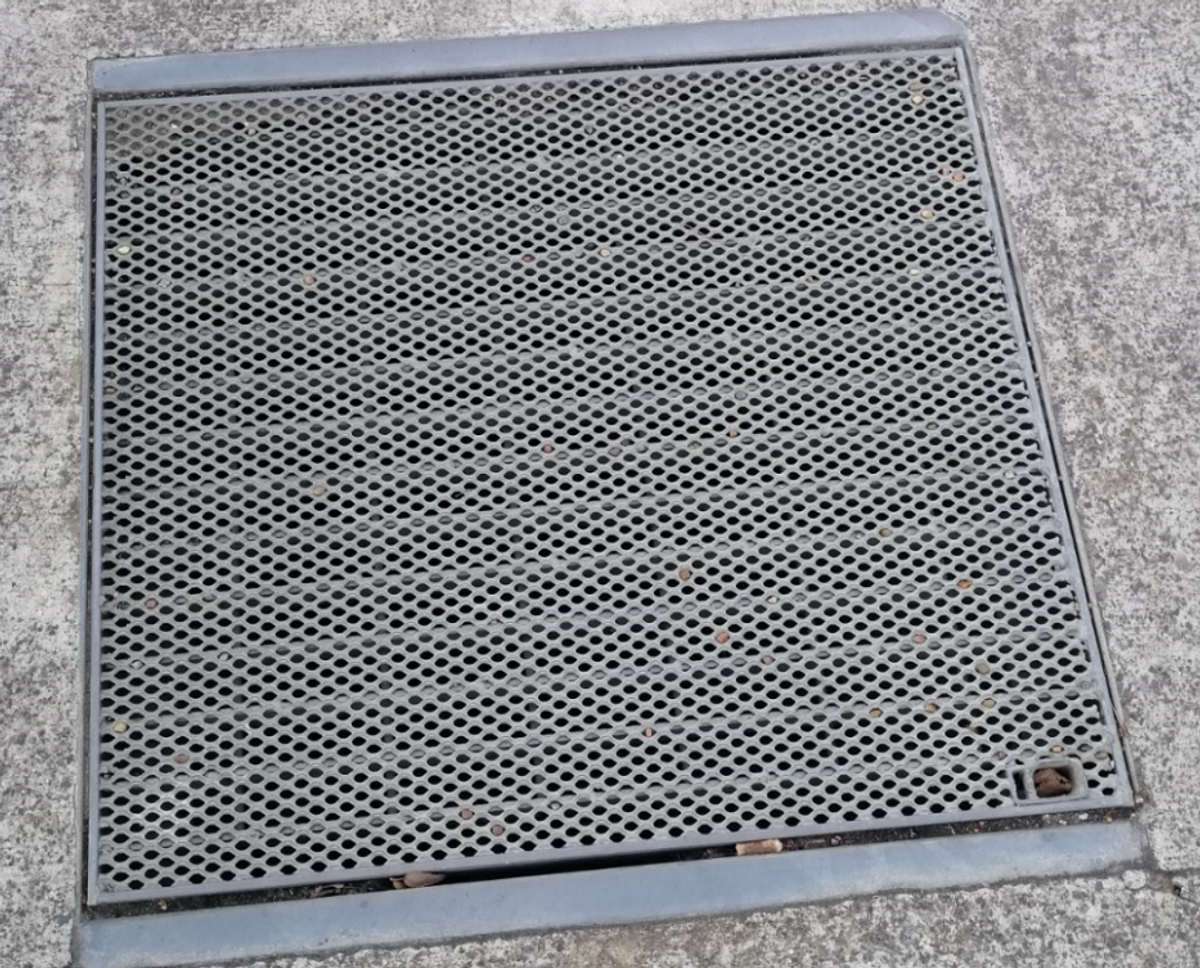Faith, Justice and Formation

St Patrick's College Alice Springs Immersion 2021
Despite our flight being on Sunday 20 June, our immersion experience started Saturday morning at the Concord Covid testing clinic. By 8:00 am, we were all lined up, including the teachers, and by 8:30 am, we were all leaving the clinic with slightly sore noses to help our desire to head to the Red Centre. Fortunately, we left Sydney just in time to get into Alice Springs, and how lucky we really were, because over the following 10 days, not only did we see some of Australia’s most beautiful natural landmarks, but experienced them through their deep connection to Aboriginal Dreaming and stories.
Unfortunately, we were unable to attend St Joseph’s Flexi due to the risk of Covid and out of respect for the Elders. Nevertheless, each day, before we visited a sacred site, we called the Aboriginal fellas over Zoom and they told us the stories, history and Dreaming connected to the place. Thanks to the fellas, the rock paintings of Emily Gap, the water of Ellery Creek, the cracks of Uluru and the domes of Kata Tjuta came to life with stories of the giant caterpillars, Rainbow Serpent, Lungkata the greedy Lizard and more. Obviously, it’s one thing to see special places like Uluru, but to be taught the stories and history by our nation's first stewards is truly a privilege the boys and I will never forget. It’s clear that as a group, our understanding of country and being stewards of the land has grown; one example that sticks out to me was when we were leaving Ormiston’s Gorge and Dimitri saw a lady trying to take a rock from the site. He didn’t hesitate to tell her not to take it and to return it to where it originally was because as we learned, everything in country, from the smallest pebble to largest mountain, has a purpose. On behalf of the group, I can confidently say our connection to country has grown significantly because of our experience and we have learned to be stewards for the land.
I would like to say a big thank you from all the boys to Ms Daley, for the opportunity to represent the cohort on such an incredible experience, as well as a big thank you to Mr Fox and Mr Cooper, who not only gave up a significant amount of time to make the Immersion what it was, but who also taught us how to boil potatoes and wash our clothes in the sink! We also thank Mr Herro for his invaluable insights early on. We grew as individuals and our College’s relationship with St Joseph’s also grew along the way, ready for next year’s crew to nourish.
Jake Milligan
Year 11 Immersion Participant
The Cooks River Stormwater Project
In 2020, our school was successful in gaining a grant from the Cooks River Alliance and local government as part of a planned project to help reduce our impact on the Cooks River, as the school’s stormwater drains lead directly into the river (we are at the start of the river). This means every bit of rubbish that goes in the drain goes into the river affecting the local habitat. The Cooks River Alliance is made up of all the councils that surround the Cooks River and aims to reduce the pollution in the river and help turn it into a thriving ecosystem again.
Our school created a group of students from Year 5 to Year 12 to work with Grant from the Georges River Environmental Education Centre in this 12-month project. We conducted a drain audit in 2020 that found several drains with plastic pollution problems. We also determined that our Rain Garden that is located near the synthetic football field next to Powell Pavilion, had degraded and needed to be replenished, not to mention greater education. The rain garden is designed to help filter out any pollutants through the use of native plants that act as a filter for the water.
Last term, the Cooks River Stormwater Sustainability Group (the students overseeing the project) was able to implement the solutions that were determined last year. The boys worked hard and learned about how native plants flourish and the conditions they need to survive. Sedges and rushes were planted along the central areas of the garden where the flood rains drain into, like a creek line. Then flowering shrubs and native grasses were planted in the surrounding drier areas of the garden. By restoring the rain garden, we have improved the ability of the garden to filter out fertilisers and Astro-turf micro plastic runoff before it enters into the river, as well as improving the aesthetics of the raingarden. We have also sourced new grates for many drains around the College to prevent rubbish and large items getting in them with a large sum of the grant money.
The experience of learning about how we affect the Cooks River, including how by using simple solutions such as rain gardens with native plants we are able to reduce our negative impact, was truly enlightening for the boys and as a group we have become more aware of the importance of the Cooks River and its surrounding ecosystem. However, the biggest learning for all is to lessen our rubbish (#rubbishfreelunches) and ensure we dispose of any rubbish appropriately. We hope a student will design an artwork to go around some drains to remind us to put our rubbish in the bins for the sake of our beautiful earth.
To find out more about this project, this is the Cooks River Alliance website: All About the Cooks River or to see what else you can do, check out Cooks River Sustainability Centre and Riverside Parklands.
Vincent Younes
St Patrick’s College Sustainability Prefect
Identity at St Patrick’s College: Part 2 Liturgical Life
The Catholic identity of the College can most prominently be seen through our liturgical life. It is the core of our faith community for it is in celebrating rituals together that we express our beliefs and our connection. It is impossible for any of us to be a Christian on our own as the tradition is only really alive in union with one another. Jesus himself said “For where two or three are gathered together in my name, I am there among them" (Matthew 18:20).
Census data shows us that the practising of our faith is becoming less regular for a myriad of reasons – none of which I am here to debate. It is through regular practice that individuals grow a deeper understanding of their faith, and gain an understanding of the customs, practices, and nuances of each liturgy. Sadly, more and more do not understand why we do what we do, and how to do it. This is a joint responsibility between home and school, and one that can lead to a rich and full connection to something beyond the tangible.
A few simple things I have observed in recent years include the following:
- Most people not knowing the difference between a Mass and a liturgy. Mass is when we have the consecration of the hosts by a priest so that we may receive Christ in the Eucharist. Liturgies are other ritualised gatherings and celebrations.
- So many believe that liturgical events need to be solemn or sombre affairs. To the contrary – they are intended to be celebrations of God’s presence within us and Christ’s resurrection from the dead. Even funerals, while extremely sad, are about the celebration of life in Christianity. What we need is reverence and respect for the sacredness of the occasion, but not frowns and muffled voices or the like.
- An increasing number of people seem to think that prayer and ritual are passive events; something that happens to them rather than something they partake in. There is always time for silent and individual prayer, but communal rituals are about joining as one to deepen our collective and individual relationships with God and to connect with one another through this shared experience. Communal singing in celebrations is very important because “to sing is to pray twice” (St Augustine) and many other components of the ritual reflect our prayers going to God. Quakers are passive in their prayer; Catholics are not.
We celebrate many rituals at the College for a variety reasons, one of which is education (which is best when it is regular), but the most important reason is as pure and simple as worshipping God together. Our collective voices join to show our devotion and remind ourselves of God’s great blessings upon us.
Here is a basic list of events in the St Patrick’s College liturgical life:
- Whole School Masses: Opening Mass (start of the year) and Founder’s Day
- Parent Masses: Mothers’ Day and Fathers’ Day Masses
- Community Masses: Friday morning Masses in the Chapel at 8:15 am. nearly every Friday of the year; each led by a year group, house group or other group; open to students, staff, parents, and friends
- Masses for Significant Events: Year 12 Graduation Mass, Year 6 Thanksgiving Mass, Year 5 Welcome Mass, Junior School Grandparents’ Mass, Junior School Mission Mass
- Masses on Senior Retreat and liturgies on all Spirituality/Reflection Days (Formation events)
- Whole School Liturgies: Ash Wednesday, Holy Week/Easter, Christmas
- Liturgies for many significant moments and rites of passage: Junior and Senior Leadership Voting Liturgies, Transition Liturgy for Year 11 students to receive their Black Tie
- Invitational: The Festival of Carols and Readings in Advent, the occasional Mass on a Saturday connected to sport and/or Old Boys
- Other liturgies in class also take place across the year
- Reconciliation is offered to all Junior School classes and most Secondary Religion classes throughout the year, as well as at lunchtimes, especially in Lent
- The Rosary is led by a group of students in the Chapel each Wednesday, and students have the opportunity to pray the Divine Mercy Chaplet at lunch on Fridays in the Chapel
- Various opportunities for prayer/liturgy in the Chapel at lunch, especially in Lent and the Month of the Rosary (October)
- Prayer commences all gatherings, from assemblies to class to meetings
- The Angelus (Regina Coeli in the Easter Season) is prayed over the PA system each day for the whole community to join in
- Many staff and students represent the College at external celebrations
- Other Masses and/or liturgies take place for special events.
While we would love to be able to hold all liturgies in the Chapel, that just is not practical, so it is important we remember that Christ is where we are gathered with the intention to pray. We can, in turn, receive Christ through Word and/or Eucharist. Both are valid and important, hence why our Sunday obligation involves both - the two peaks of our celebration.
Liturgies are usually student led and often created by students. They show that all of us are called to lead worship of God through our Baptismal promises. As a College, we also have a Faith Formation/Spirituality Prefect who helps lead in this area, and the Faith in Action Team (Co-curricular for Years 7 - 9) not only work for justice but contribute greatly to the liturgical life often through leadership. In addition, we are also blessed with a wonderful College Chaplain, Fr Jack Evans, who leads through compassion, love, and example, and continues to minister to Old Boys of the College.
There is always so much more that can be said, but this is a simple overview of what happens in our liturgical life; the Church’s liturgical calendar is rich and full, as is our College calendar.
Ms Gillian Daley
Director of Identity

